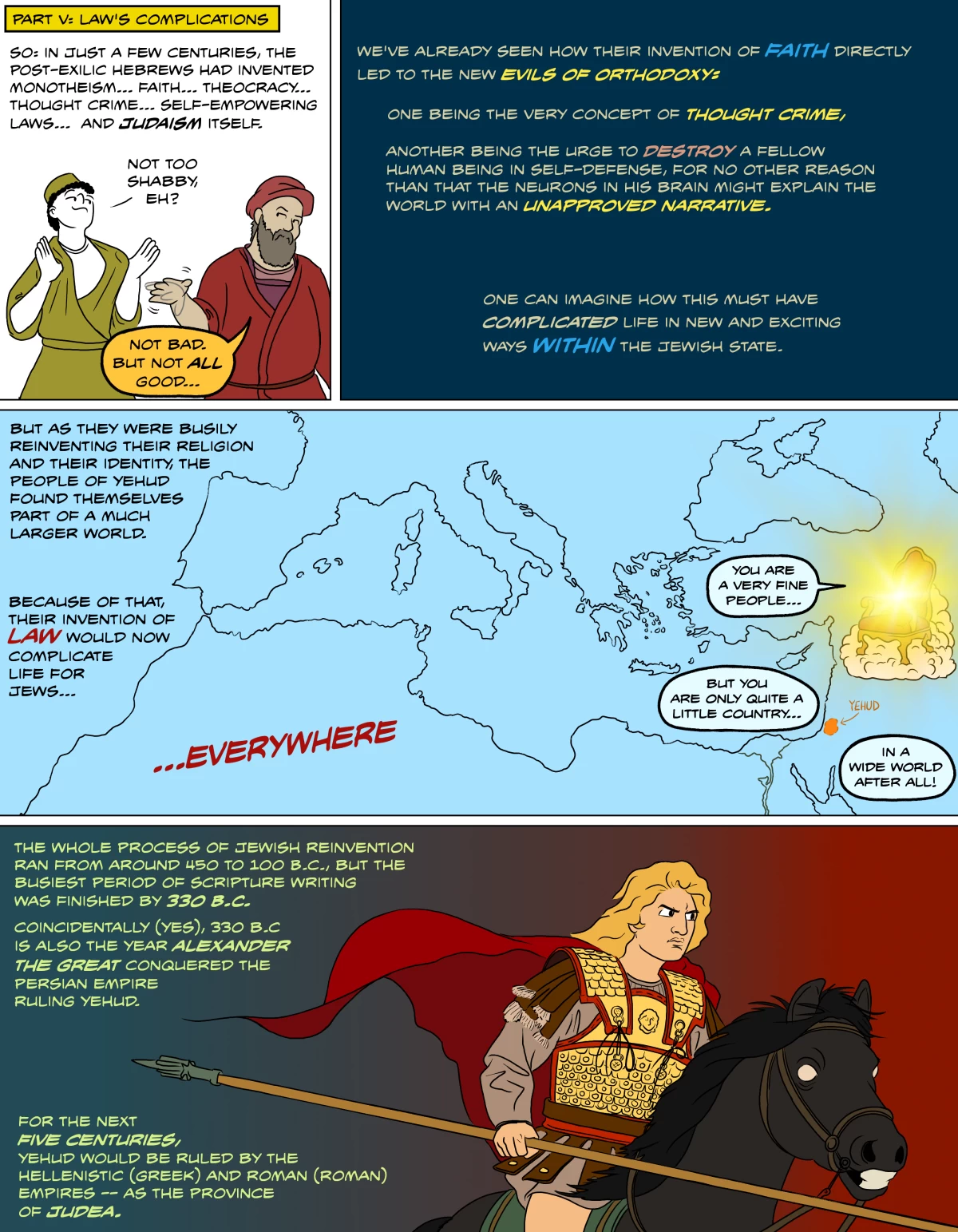
.
What a sweet little ponie. I think I’ll name him “Ox-Head.”
.
.
…It sounds better in the original.
Constitutional Law
Part 2: “What Were They Thinking?”
Digression: “A History of Government in 6 Revolutions: From the Paleolithic to Philadelphia”
128. Inventing Got and Law: Law’s Complications
TITLE: Part V: Law’s Complications
Panel 1: The fez guy from pages 118 and 119 sticks his thumbs in his robe proudly, as if they were suspenders. An older bearded man in red and purple garb shakes his hand in a so-so gesture.
NARRATION:
So: In just a few centuries, the post-exilic Hebrews had invented monotheism… faith… theocracy… thought crime… self-empowering laws… and Judaism itself.
FEZ GUY:
Not too shabby, eh?
RED GUY:
Not bad. But not all good…
-=-
Panel 2: Narration box.
NARRATION:
We’ve already seen how their invention of faith directly led to the new evils of orthodoxy:
One being the very concept of thought crime,
Another being the urge to destroy a fellow human being in self-defense, for no other reason than that the neurons in his brain might explain the world with an unapproved narrative.
One can imagine how this must have complicated life in new and exciting ways within the Jewish state.
-=-
Panel 3: A map of the Mediterranean world. Tiny Yehud is shown in orange against a vast swath of blue. Above Yehud, a bright light speaks from an otherwise empty throne in the clouds.
NARRATION:
But as they were busily reinventing their religion and their identity, the people of Yehud found themselves part of a much larger world.
Because of that, their invention of law would now complicate life for Jews…
…EVERYWHERE
YAHWEH:
You are a very fine people…
But you are only quite a little country…
In a wide world after all!
-=-
Panel 4: Alexander the Great, clad in armor and a cape, and carrying a spear, gallops on his horse Bucephalus. He looks ahead with determination, his cape streaming out behind. Bucephalus’ eyes and teeth look evil.
NARRATION:
The whole process of Jewish reinvention ran from around 450 to 100 B.C., but the busiest period of scripture writing was finished by 330 B.C.
Coincidentally (yes), 300 B.C. is also the year Alexander the Great conquered the Persian Empire ruling Yehud.
For the next five centuries, Yehud would be ruled by the Hellenistic (Greek) and Roman (Roman) empires—as the province of Judea.

